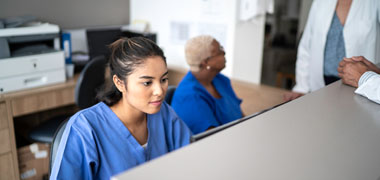
This role has a high level of AI exposure. While some human skills are required, many tasks could be automated or replaced by new technology.
Explore all careersBiomedical Researchers investigate biological processes of diseases to develop new treatments, designing experiments and collaborating on medical advancements.
Get qualified to work as a Biomedical Researcher with a course recognised across Australia. Speak to a training provider to learn more.


Browse occupations related to Biomedical Researcher



For those looking to advance their career in healthcare and science, exploring Biomedical Researcher courses in Albany is an excellent step. The Albany area, rich in academic and research institutions, offers a range of higher education courses that equip students with the skills necessary to thrive in the biomedical field. With two advanced courses available for experienced learners, the options cater specifically to individuals with prior qualifications in related areas.
Among the notable offerings is the Bachelor of Biomedicine, which provides foundational knowledge and hands-on training in biomedicine. For those seeking a deeper understanding, the Master of Biostatistics is an advanced qualification ideal for individuals looking to specialise in statistical methods as applied to biological research. Both of these qualifications are recognised in the industry and can significantly boost your prospects in the job market.
In addition to these courses, pursuing a career as a Biomedical Researcher opens doors to a variety of related job roles in Albany. Graduates may find opportunities as a Laboratory Assistant, where they can support scientific tests and experiments, or as an Ecologist, focusing on the study of ecosystems and environmental health. Other exciting career paths include becoming a Toxicologist, Microbiologist, or even an Embryologist, each playing a crucial role in advancing health science.
The demand for skilled professionals in the biomedical field continues to grow, providing graduates of Biomedical Researcher courses in Albany with robust career prospects. Those who excel in the classroom can transition to roles as Biomedical Scientists or Research Scientists, contributing valuable insights to scientific research. Furthermore, skills gained can lead to opportunities in biotechnology, with roles as a Biotechnologist or Biologist, where you can make a difference in healthcare solutions.